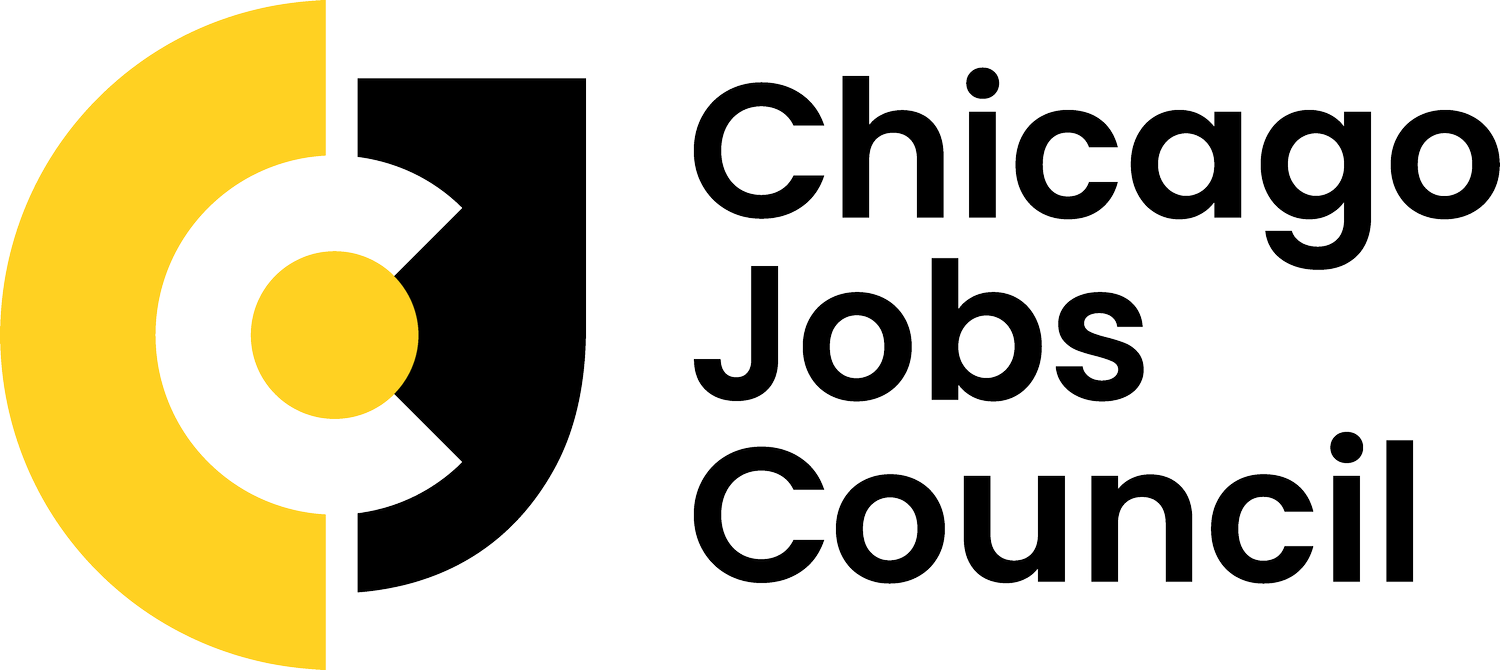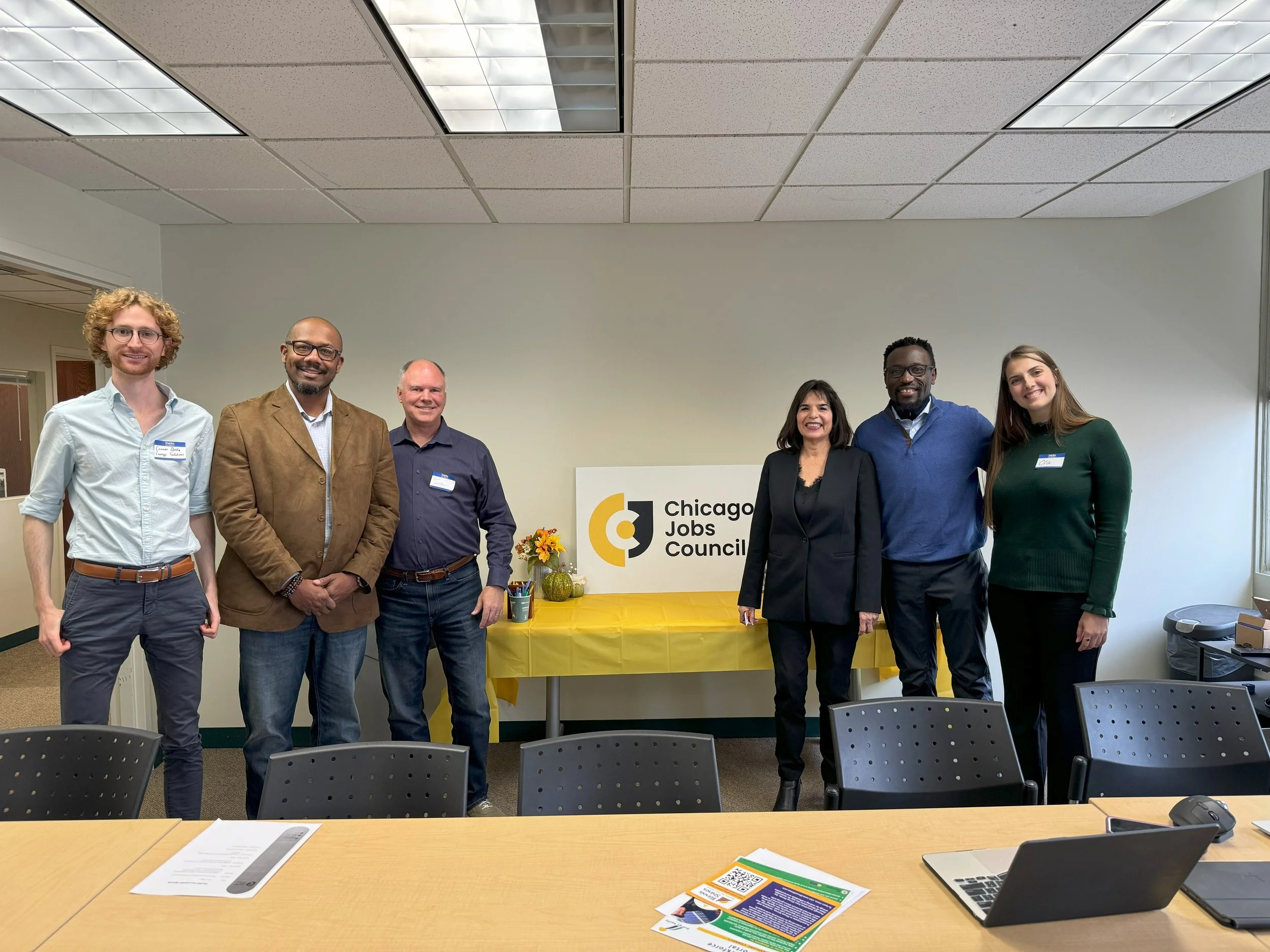Equity Eligible Contractor Roundtable Recap
By CJC Senior Policy Research Fellow Mimi Hutchinson
A field of solar energy panels.
As 2024 approaches, the rollout of the Illinois Climate and Equitable Jobs Act (CEJA) is picking up speed. Since the close of the application window for the Clean Energy Contractor Incubator program on December 11th, workforce organizations and clean energy contractors across the state eagerly await the release of the Returning Resident Clean Jobs Notice of Funding Opportunity (NOFO). Those with extensive capacity and grant management experience are especially well-positioned amid the program announcements. On the other hand, Equity-Eligible Contractors (EECs) and Equity-Eligible Persons (EEPs) – groups whose success is directly linked to CEJA’s overarching goals – may have more difficulties applying for CEJA funding due to being first-time applicants.
The Chicago Jobs Council recently hosted an event aimed at CEJA stakeholders, EECs, and EEPs to foster collaboration and advance clean energy workforce initiatives. CJC’s EEC/EEP Roundtable was held on November 20th, 2023, and the event served as a platform for a comprehensive exploration of efforts to strengthen EEC and EEP participation in CEJA programs.
State Representative Marcus Evans, a key participant, shared a legislator’s perspective, emphasizing the imperative to bolster clean energy jobs for historically marginalized communities. Representing Illinois’ 33rd District, which includes the South Side of Chicago and South Suburban Cook County, Evans also underscored the importance of diversity in clean energy initiatives. In his role as the Vice President of Communications for State Legislators at the National Conference of State Legislators (NCSL), he aims to set an example by proposing the establishment of three highly visible incubator hubs to garner support for clean energy jobs.
Discussions delved into the challenges faced by EECs and EEPs, focusing on avoiding exceptions that favor larger contractors and exclude BIPOC communities. Delmar Gillus, Chief Operating Officer at Elevate, provided background information on how EECs and EEPs became integral to CEJA. He emphasized the high level of community engagement through listen-learn-share sessions and how the CEJA coalition, comprising 250 environmental organizations and individual community members, aims to build a strong collective with diverse perspectives.
The conversation also addressed the importance of incorporating equity into the CEJA bill, with the first 70 pages dedicated to addressing gender and race-related issues. The practical aspects of implementing clean energy initiatives were explored, with insights from Delmar’s organization, which serves on behalf of the Illinois Power Agency (IPA) as a state administrator for the Illinois Solar for All (ILSFA) program.
Representative Evans stressed the need for patience in introducing new initiatives, envisioning progress and leadership in clean energy two decades from now. The meeting included insights from participants who discussed the bill’s equity requirements, support for EECs in contractor pathways, high interconnection costs in rural disadvantaged communities, and fair loans for EEC equipment, hiring, and training.
Finally, the meeting covered recently-announced CEJA programs, such as the Equitable Energy Future (EEF) Grant Program. EEF grants address pre-development and construction costs, and applications will be accepted through June 30th, 2024. Participants acknowledged the complexity of the clean energy landscape and the need for ongoing communication and collaboration.
The event concluded with actionable items, including compiling contact information, sharing relevant links, and encouraging ongoing communication. Participants were committed to learning from each other’s experiences and collectively addressing challenges, emphasizing the collaborative and iterative nature of advancing clean energy workforce initiatives like CEJA.
Read a full report on the Roundtable here.
Support for this event was provided by the Hulsebosch Hope Foundation.










